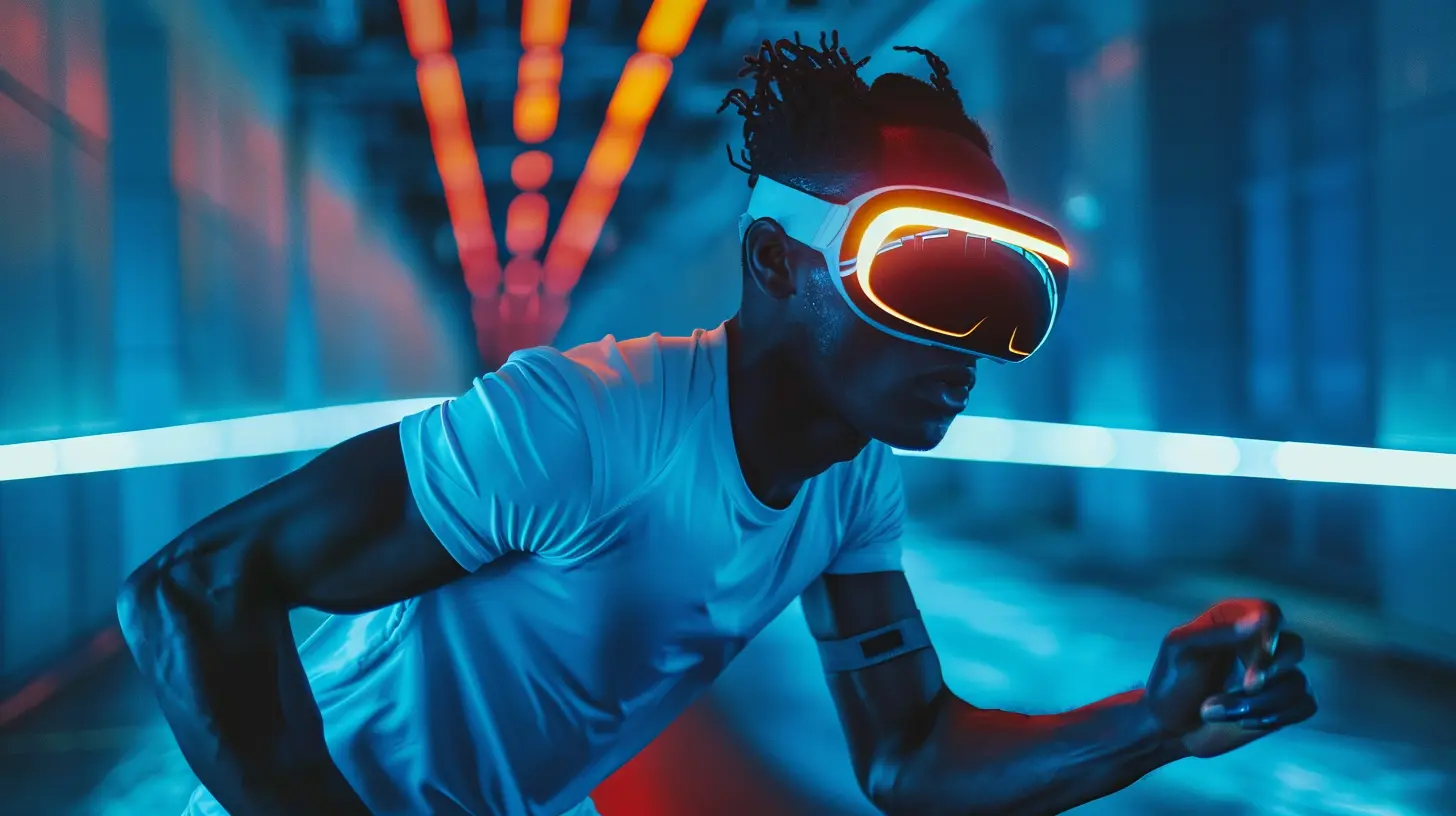How Wearable Tech is Changing the Way We Train for Athletic Performance
29 October 2025
Let’s face it—athletic training isn’t what it used to be. Gone are the days of relying solely on intuition, old-school coaching tips, or just "pushing through the pain." In today's world, wearable technology is flipping the training game on its head. It’s like having a personal coach, sports scientist, and physical therapist strapped to your wrist, shoe, or even stitched into your shirt. Sounds like sci-fi? Well, it’s not.
In this post, we’re diving into how wearable tech is revolutionizing the way athletes—both pros and weekend warriors—are training smarter, performing better, and recovering faster than ever before.
The Rise of Wearable Tech in Sports
So, what exactly is wearable tech? Think smartwatches, fitness trackers, heart rate monitors, GPS-enabled clothing, and even sensor-laden insoles. It’s tech you can wear, and its main mission? To collect real-time data about your body, your movement, and your performance.Whether you’re a cyclist chasing speed, a sprinter timing splits, or a weightlifter tracking load, wearable devices are giving athletes—and their coaches—an inside look at what’s really going on beneath the surface.
From Step Counters to Smart Performance Analytics
Originally, wearables were pretty basic. Step counters and calorie trackers were fun but didn’t really move the needle for serious athletes. Fast forward to today, and wearables have evolved into mini-computers that measure everything from VO2 max to lactic acid levels. That’s right—some smart wearables can even warn you before your muscles start to fatigue.It's not just a tech trend—it’s a game-changer.
Real-Time Feedback: The New Standard in Training
Let’s be honest, waiting till the end of a workout to find out how you did isn’t exactly helpful. That’s where real-time feedback steps in.Know Your Heart Like Never Before
Heart rate monitors are no new kids on the block, but today’s versions can do a lot more than tell you how fast your heart is beating. They can show you which zone you’re training in—fat burn, endurance, peak performance—and they’ll even give you alerts if you’re overdoing it.Pretty cool, right?
Form Check Without the Coach
Sensors in wearable tech can now analyze your form. Running with a limp after last week's marathon? Your smart insoles might catch that. Lifting with poor technique? A motion-tracking suit can flag it before you hurt yourself. It's like having a coach in your pocket (or on your wrist).
Injury Prevention: Catch Problems Before They Happen
Let’s talk about the dream—training hard and staying injury-free. While that sounds too good to be true, wearable tech is making it a reality for more athletes every day.Spotting Red Flags Early
Some wearables track overtraining indicators like elevated resting heart rate, poor sleep, or decreased heart rate variability (HRV). Think of HRV as your body’s check engine light. When it’s off, something’s up. And knowing before it turns into a full-on injury? That’s gold.Monitoring Muscle Load and Recovery
Some smart garments and patches even track muscular load and fatigue. They tell you when to push and when to rest, which is crucial in high-impact sports like football, rugby, or CrossFit.So yeah, your shirt might be smarter than you think.
Personalized Training Programs (Because One-Size-Fits-All Doesn’t Work)
Not everyone trains the same, and wearable tech gets that. It’s now easier than ever to create personalized training programs built around your unique physiology and performance metrics.Data That Adapts With You
Let’s say you’re a runner. Based on your pace, heart rate trends, and recovery times, your smartwatch or app could recommend lighter runs, threshold sessions, or even rest days. Over time, your tech adapts to you—not the other way around.It’s like having a digital personal trainer that evolves as you do.
Sleep and Recovery: The Hidden Edge
If you’re still thinking of sleep as "just downtime," it’s time to get with the program. Wearables now monitor sleep cycles, quality, and recovery measures to ensure athletes are recharging properly between sessions.Sleep Trackers Are the Real MVP
By analyzing sleep stages (REM, light, deep) and giving you a recovery score, devices like the WHOOP band or Oura Ring help determine if your body is ready for today’s intense workout—or if it needs another recovery day.Smart rest is just as crucial as smart training.
Nutrition & Hydration: Yes, That’s Wearable Too
Believe it or not, some wearables are even helping athletes manage hydration and nutritional intake.Smart Patches and Sweat Sensors
These little marvels can analyze sweat composition—salt levels, dehydration signs, and even glucose levels. This is huge for endurance athletes who lose tons of electrolytes during training. Imagine adjusting your water and electrolyte intake in real-time based on what your patch is telling you.Talk about next-level performance.
Gamification: Because Training Shouldn’t Be Boring
Sure, training is serious business. But it doesn’t have to feel like a chore. Thanks to wearables, many athletes are turning their workouts into games.Compete With Yourself (Or Others)
Leaderboards, personal best badges, push notifications, workout streaks—all of these features keep you engaged and motivated. Fitness platforms linked with wearables, like Strava or Garmin Connect, let you race your friends or see how you stack up against a leaderboard.It brings out your inner competitor, even during solo sessions.
The Mental Game: Hidden Benefits of Wearables
Here’s a thought: wearable tech isn’t just about physical performance. It’s also playing a role in mental wellness.Stress Tracking and Biofeedback
Many devices now measure stress levels using heart rate variability, skin temperature, and breathing patterns. Some even offer guided breathing or meditation when your stress markers are high. That’s a massive benefit for athletes in high-pressure environments.It's like having a mindfulness coach that actually lives on your wrist.
From the Pros to the Amateurs: Who’s Using This Stuff?
You might think only elite athletes have access to this tech. Not true. Sure, the NFL, NBA, and Olympic teams are all onboard, but weekend warriors, high school athletes, and fitness enthusiasts are benefiting big-time too.If you’ve got a smartphone and about $100, you can start custom-tracking your performance today.
That’s pretty empowering, isn’t it?
The Future of Wearable Tech in Athletics
The possibilities? Nearly endless. With advancements in AI, machine learning, and biometric sensors, we’re just scratching the surface.What’s Coming Next:
- AI-driven training plans: Constantly adapting in real-time.- Augmented Reality integration: Real-time coaching visuals during play.
- More discreet wearables: Like skin tattoos or embedded wearables.
- Deeper health integrations: Blood oxygen, real-time blood glucose, hormonal analysis.
It’s not just wearable health tech anymore—it’s becoming wearable performance intelligence.
Challenges and Concerns
Okay, it’s not all sunshine and six-packs. We’d be lying if we didn’t mention a few challenges.Data Overload
Sometimes more data = more confusion. Without context, all those numbers can become overwhelming. It’s important to interpret trends, not obsess over spikes.Privacy and Ethics
Who owns your health data? Are companies tracking you beyond your workouts? With great tech comes great responsibility.Athletes and coaches need to stay informed and make sure data security is part of the equation.
Final Thoughts
At the end of the day, wearable tech doesn’t replace hard work—it enhances it. Whether you're chasing Olympic gold or trying to beat your 5K PR, wearables give you insight, guidance, and a clearer path to progress.Training used to be all about grit. Now, it’s grit plus data. That’s a combo that’s rewriting the rules of athletic performance.
So, are you ready to upgrade your training game?
all images in this post were generated using AI tools
Category:
Wearable DevicesAuthor:

Michael Robinson
Discussion
rate this article
1 comments
Katie McElroy
Who knew our watches would become our personal trainers? Next thing you know, they'll be yelling at us for skipping workouts! Wearable tech: turning couch potatoes into fitness superheroes, one step (and heart rate) at a time. Just don't forget to charge them before your next marathon!
October 29, 2025 at 5:53 AM

Michael Robinson
Absolutely! Wearable tech is revolutionizing training by promoting accountability and real-time feedback, making fitness more accessible and engaging. Just remember to keep them charged!


